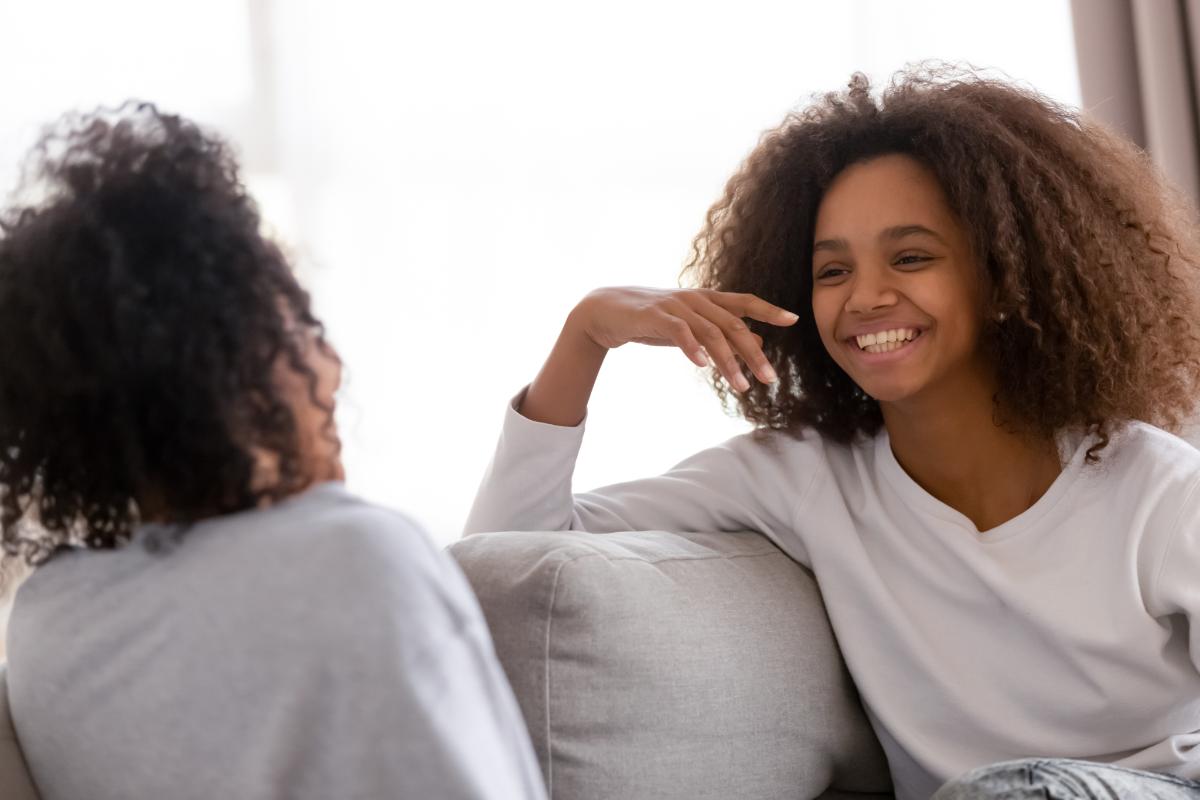Introduction
Post-Traumatic Stress Disorder (PTSD) is a mental health condition that can develop after a person experiences or witnesses a traumatic event, such as a natural disaster, a serious accident, a terrorist act, war/combat, or sexual assault. It is a complex and often misunderstood disorder that can have a profound impact on an individual’s mental, emotional, and physical well-being.
At Imperative Health Services (IHS), we understand the devastating effects that PTSD can have on individuals and families. As a full-service outpatient mental health clinic in Maryland, we are dedicated to providing compassionate, comprehensive care to those struggling with the aftermath of trauma.
In this blog post, we will explore the symptoms of PTSD, the available treatments, and the hope that exists for those living with this challenging condition. Our goal is to provide a foundation of knowledge and understanding that can help individuals and families recognize the signs of PTSD, seek appropriate care, and begin the journey toward healing and recovery.
What is PTSD?
PTSD is a mental health disorder that can occur in people who have experienced or witnessed a traumatic event. It is a normal human response to an abnormal situation, and it is not a sign of weakness or a character flaw.
While it is common to experience a range of reactions after a traumatic event, such as shock, anger, nervousness, fear, and even guilt, most people recover from these initial symptoms naturally. However, those who continue to experience problems may be diagnosed with PTSD. These individuals may feel stressed or frightened, even when they are no longer in danger.
Symptoms of PTSD
PTSD symptoms typically fall into four categories: intrusive memories, avoidance, negative changes in thinking and mood, and changes in physical and emotional
reactions. These symptoms can vary in intensity over time and can be triggered by reminders of the traumatic event.
- Intrusive Memories:
– Recurrent, unwanted, distressing memories of the traumatic event – Reliving the traumatic event as if it were happening again (flashbacks) – Upsetting dreams or nightmares about the traumatic event
– Severe emotional distress or physical reactions to something that reminds you of the event
- Avoidance:
– Trying to avoid thinking or talking about the traumatic event
– Avoiding places, activities, or people that remind you of the traumatic event
- Negative Changes in Thinking and Mood:
– Negative thoughts about yourself, other people, or the world
– Hopelessness about the future
– Memory problems, including not remembering important aspects of the traumatic event
– Difficulty maintaining close relationships
– Feeling detached from family and friends
– Lack of interest in activities you once enjoyed
– Difficulty experiencing positive emotions
– Feeling emotionally numb
- Changes in Physical and Emotional Reactions:
– Being easily startled or frightened
– Always being on guard for danger
– Self-destructive behavior, such as drinking too much or driving too fast – Trouble sleeping
– Trouble concentrating
– Irritability, angry outbursts, or aggressive behavior
– Overwhelming guilt or shame
It’s important to note that these symptoms can vary from person to person and may not be constant. They can come and go, and their intensity can change over time.

Risk Factors for PTSD
While anyone can develop PTSD at any age, some factors may increase the likelihood of developing the disorder after a traumatic event. These include:
– Experiencing intense or long-lasting trauma
– Having experienced other trauma earlier in life, such as childhood abuse – Having a job that increases your risk of being exposed to traumatic events, such as military personnel and first responders
– Having other mental health problems, such as anxiety or depression – Having problems with substance misuse, such as excess drinking or drug use – Lacking a good support system of family and friends
– Having blood relatives with mental health problems, including anxiety or depression
It’s important to remember that not everyone who experiences a traumatic event will develop PTSD, and not everyone with PTSD has experienced a dangerous event. Some experiences, like the sudden, unexpected death of a loved one, can also cause PTSD.
Treatments for PTSD at IHS
At Imperative Health Services, we offer a range of evidence-based treatments for PTSD, tailored to the unique needs of each individual. Our compassionate and skilled clinicians, including psychiatrists, psychologists, therapists, and counselors, work collaboratively to provide comprehensive care that addresses the complex nature of PTSD.
Some of the key treatments we offer include:
Psychotherapy
Psychotherapy, or talk therapy, is the primary treatment for PTSD. It involves working with a mental health professional to process the traumatic experience and learn coping strategies. At IHS, we offer several evidence-based psychotherapy approaches:
– Cognitive Behavioral Therapy (CBT): CBT helps individuals recognize and change unhelpful thought patterns and behaviors. It can include exposure therapy, where individuals gradually and safely confront the trauma memory, and cognitive restructuring, which helps individuals reframe negative thoughts about the trauma.
– Eye Movement Desensitization and Reprocessing (EMDR): EMDR is a psychotherapy that helps individuals process and heal from traumatic memories. It involves focusing on a traumatic memory while simultaneously experiencing bilateral stimulation, usually in the form of eye movements guided by the therapist.
– Prolonged Exposure Therapy: This therapy involves gradually exposing individuals to trauma-related memories, feelings, and situations they have been avoiding. By confronting these challenges in a safe environment, individuals can reduce PTSD symptoms and regain control of their lives.
Medication
While psychotherapy is the primary treatment for PTSD, medication can also be helpful in managing symptoms. At IHS, our experienced psychiatrists work closely with individuals to find the right medication or combination of medications to alleviate PTSD symptoms. Some common medications used in PTSD treatment include:
– Antidepressants: Selective serotonin reuptake inhibitors (SSRIs) and serotonin-norepinephrine reuptake inhibitors (SNRIs) can help manage PTSD symptoms such as sadness, worry, anger, and feeling numb inside.
– Anti-anxiety medications: These medications can help relieve severe anxiety and related problems, such as difficulty sleeping and muscle tension.
– Prazosin: This medication can help alleviate nightmares related to PTSD.
- Complementary and Alternative Therapies
In addition to traditional psychotherapy and medication, we offer a range of complementary and alternative therapies that can support the healing process. These may include:
– Mindfulness and relaxation techniques
– Art therapy
– Equine-assisted therapy
– Yoga and physical exercise
– Nutrition counseling
These therapies can help individuals manage stress, improve emotional regulation, and promote overall well-being.

The IHS Difference: Comprehensive, Compassionate Care
At IHS, we understand that PTSD is a complex and deeply personal journey. That’s why we are committed to providing comprehensive, compassionate care that addresses the unique needs of each individual.
Our approach is grounded in a deep understanding of trauma and its impact on the mind, body, and spirit. We create a safe, supportive environment where individuals can process their experiences, learn new coping strategies, and build resilience.
Some of the key features of our approach include:
– Trauma-informed care: All of our clinicians are trained in trauma-informed care, which means we understand the widespread impact of trauma and recognize the signs and symptoms of PTSD.
– Evidence-based practices: We use treatments that have been proven effective through rigorous scientific research, ensuring that individuals receive the highest quality care.
– Collaborative approach: We work closely with individuals and their families to develop personalized treatment plans that address their unique needs and goals. – Holistic care: We recognize that PTSD affects all aspects of an individual’s life, and we provide comprehensive care that addresses mental, emotional, and physical well-being.
– Ongoing support: We provide ongoing support and follow-up care to ensure that individuals have the tools and resources they need to maintain their recovery.
Hope and Healing: Recovery is Possible
While PTSD can be a challenging and overwhelming condition, it’s important to remember that recovery is possible. With the right treatment and support, individuals can learn to manage their symptoms, heal from their trauma, and reclaim their lives.
At IHS, we have witnessed the incredible resilience and strength of the human spirit in the face of trauma. We have seen individuals transform their lives, build meaningful relationships, and pursue their dreams, despite the challenges of PTSD.
We are here to support you every step of the way on your journey to healing. Whether you are just beginning to recognize the impact of trauma in your life or have been struggling with PTSD for years, we are here to offer hope, guidance, and expert care.
Take the First Step: Contact IHS Today
If you or a loved one is struggling with PTSD, know that you are not alone. At Imperative Health Services, we are here to provide the compassionate, comprehensive care you need to heal, grow, and thrive.
Taking the first step can be difficult, but it is also an act of profound courage and self-care. By reaching out for help, you are opening the door to new possibilities for healing, growth, and transformation.
PTSD is a challenging and complex condition, but with the right treatment and support, recovery is possible. At Imperative Health Services, we are dedicated to providing comprehensive, compassionate care to individuals and families affected by PTSD.
Our skilled clinicians offer a range of evidence-based treatments, including psychotherapy, medication, and complementary therapies, tailored to the unique needs of each individual. We create a safe, supportive environment where individuals can process their trauma, learn new coping strategies, and build the resilience needed to heal and thrive.
If you or a loved one is struggling with PTSD, we encourage you to reach out for help. At IHS, we are committed to providing the expert guidance, compassionate support, and powerful tools you need to reclaim your life and build a brighter future.
Contact us today at +1 (301) 357-4794 or visit www.imperativehs.com to learn more about our PTSD treatment services and take the first step on your journey to healing. Remember, you don’t have to face this challenge alone. At IHS, we are here to support you every step of the way, offering hope, help, and the path to a life free from the grip of trauma.

